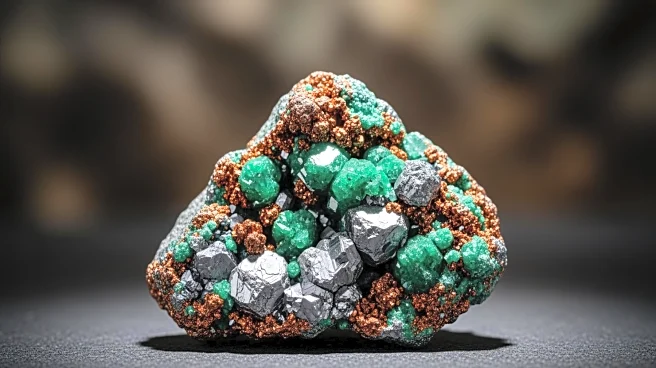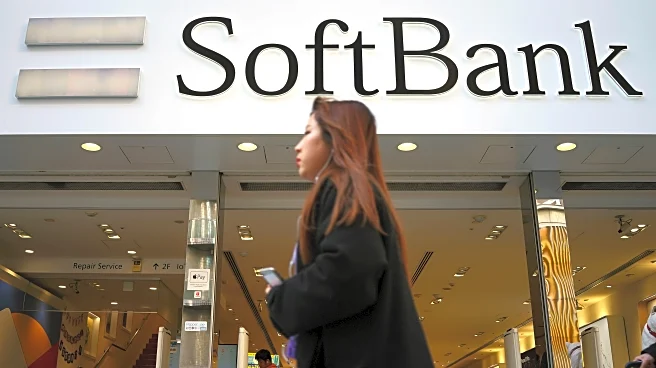What's Happening?
Recent immigration enforcement actions in the U.S. have exposed vulnerabilities in the labor and material supply chains of electric vehicle (EV) battery producers, particularly affecting Hyundai Motor Group and LG Energy Solution. A significant ICE raid at Hyundai's Georgia EV manufacturing site disrupted the construction of a joint battery plant with LG Energy Solution, halting work at a critical 3,000-acre complex. This incident highlights the fragility of labor-dependent supply chains, with agriculture also facing a 27% labor shortage during peak seasons, indirectly impacting raw material availability for EV batteries. These disruptions align with broader U.S. immigration enforcement trends under the Trump administration, prioritizing labor crackdowns in industries reliant on immigrant workers.
Why It's Important?
The immigration raids underscore the interconnectedness of labor, geopolitical, and ethical risks in the EV battery supply chain. For companies like Hyundai and LG Energy Solution, the risk lies not only in direct labor shortages but also in cascading effects on material sourcing and production timelines. These challenges are compounded by geopolitical tensions and ethical sourcing issues, such as forced labor risks in cobalt and nickel supply chains. Investors must consider operational resilience, regulatory compliance, and reputational exposure as key factors in assessing the long-term competitiveness of EV battery producers.
What's Next?
Hyundai and LG Energy Solution have adopted strategies of regionalization and vertical integration to mitigate supply chain risks. Their $4.3 billion joint venture in Georgia aims to stabilize U.S. supply chains, while a $2.8 billion investment in Indonesia secures access to nickel. However, these moves introduce new risks, including environmental degradation and human rights concerns tied to nickel mining. Investors will need to weigh these companies' strategic agility against ongoing vulnerabilities in labor compliance and material sourcing.
Beyond the Headlines
The ethical sourcing challenges faced by Hyundai and LG Energy Solution highlight broader issues in the EV industry, such as the need for decarbonization targets and compliance frameworks to address forced labor risks. The U.S. Uyghur Forced Labor Prevention Act has heightened scrutiny on supply chains linked to regions like Xinjiang, China, where lithium-ion battery materials are at risk of forced labor violations. As the EV industry races to meet decarbonization goals, the ability to navigate these multifaceted risks will determine long-term competitiveness.











